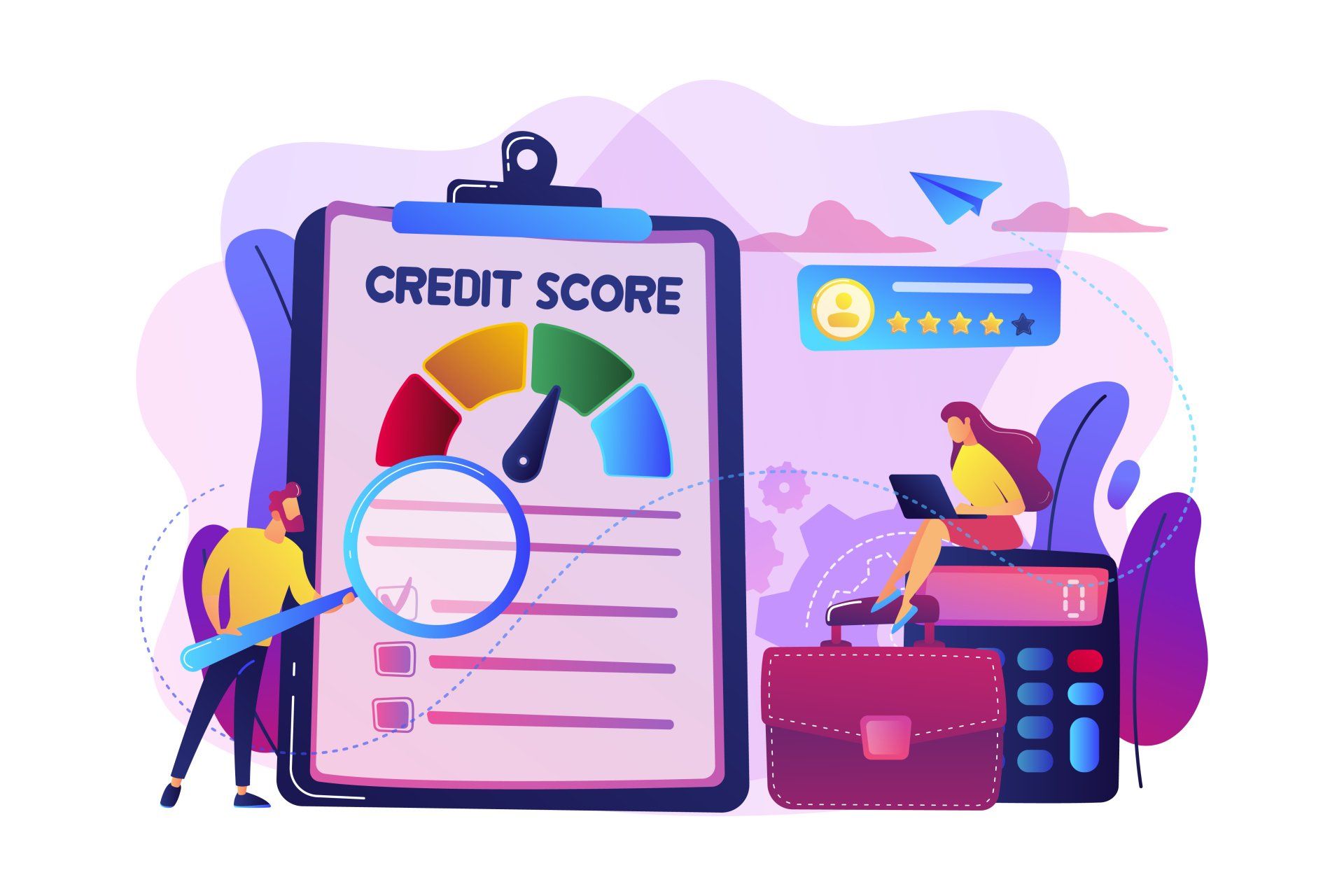Talking to your children about money
Laura Weston • 17 April 2021
Children decide about money and their approach towards money by about age seven, so really you want to be talking to them when they're around four or five, and then build that up, so that by the time they get to age seven, they have a good understanding about where money comes from, what it looks like and how to use it.
The first thing you can talk to them about is ‘Where does money come from?’ As parents it’s our duty to explain Where money comes from because unless you have that conversation children will just assume it just appears. A great way to do this is to tell them when you're going off to work, why you're going off to work, and what that means. ‘I'm going to be in the office and the reason I work is because it pays for the things we have in our house. It pays for the nice things we have in our life. And so if Mommy doesn't work, then we won't have the money, and we won't be able to have those nice things around us’. To keep that communication open is really going to make it clear to children, and they certainly pick up on absolutely everything you're saying, so just carry on explaining everything you’re doing and why with them.
The next thing is to explain to them how you can access money. I'm very conscious in this day and age, that children probably just see us using our cards in shops or in an actual fact my children see me using my phone or watch, far more than actually a card let alone cash. With this in mind it’s really important that you ask them at the time of paying for things, ‘what do you think this is doing’, ‘where do you think this money is coming from’, ‘how am I paying for this shopping’, and then explaining to them, when I tap this card, it takes money from my bank account, my bank account is where all of my money is held. Allowing them to understand that link, so they don't grow up thinking you get this special card and you have an endless supply of money. Now I know in time that they will find out that that's not true, but the sooner you can give them that message, the better. At this point, it's quite important to share with them, why we use things like contactless payments, or your phone or your watch, because cash is a risk. As we move into the next few years, I envisage us being a cashless society. So as well as showing them what cash looks like, but showing them the electronic form and cash can still be used in the same way.
Next up is opening the conversation around importance of money, if you can explain to them within your family life and your household, why money is important, what it allows you to have, what & how it drives your behaviours within your family. Then aligning this with the understanding that money is not the be all and end all, there are lots of really important things within our family that are also just as important; spending quality time together, having lots of fun, having that love and interaction and physical touch, showing each other kindness and affection. Putting money into that same group of all those other important things would just help them realise that money is just as important as some of those other things that you may well already have spoken to them about.
Lastly, I think it’s really powerful if you could explain to them how they can gain money. How can they earn more money, how can they gain more money, and that's for you to decide within your family. Educating them that you can go out to work, you could sell something, you could offer a service, or maybe you’ll choose to offer pocket money. Once you've spoken to them about how they can gain money explain to them what they can do with that money. I find it easy for children to understand is if you draw them three buckets and you explain that some of their money could go in to those buckets; a small, medium and large bucket. In the first bucket is just for them to spend in the short term, so if they want to treat themselves by some Lego, buy some toys maybe buy some sweets, then that's for them to spend, immediately as they get it, or within, let's say the first few weeks. Then the second bucket which is slightly bigger your medium bucket is for them to save up for something in particular, something that requires 3-6 months to save. Then lastly the big longer term bucket. Now it might be that they don't want to start filling their long term bucket right now because let's face it, they're not going to know about retirement and costs into adulthood like buying cars and things like that. So you might like to say to them that your family will be filling that long term bucket for you, and it might be that you won't get to see that for a little while until you're an adult, but at the very least you have shared with them how they can segment their money and save up for things just to start them off with that really good ethos around how they are separating their money.
As a re-cap, the main thing is to get this topic talked about on a regular basis within your household…..share how money works, draw it back to when you're working and earning money and how you're spending money and how you're budgeting for different things within your household. As long as you're getting the money within conversations going within your family then that's a great starting place.

In an ideal world you should set yourself up with different money pots so that you've got access to your saved money when you need it. Planning Using a zero based spending planner you can decide where you are going to put your savings and plan towards the goals that you have chosen. (please read my previous blog on the zero based spending planner if you missed it!) In an ideal world you would want an emergency fund of money, which is a certain amount of saved money that will pay for unexpected expenses things. For example when your washing machine breaks down unexpectedly, or your boiler has an issue which needs fixing urgently and it may cost more than you would have available that month, as you won’t have planned for it, and historically you would have just put it in a credit card and paid it off later or over a period of time. Emergency funds Most people typically hold between £1,000 - £2,000 in their emergency fund. As an emergency fund you will need to be able to access the money instantly because it's an unexpected expense. I would recommend that you put the emergency fund into an ISA because you don't envisage the need to touch it, but if you do need to access it then your money is easily accessible in an ISA. Essential funds Then the second type of money pot that I believe everybody needs is a 3 – 6 month expenses pot. This is the minimum amount of money you need to live on. So if you don't have an income this will cover your essential bills and your food. This won’t include all your direct debits and other bill, but your essentials and food. A premium bond is a great place to hold this amount of money because you can access it in less than a week which will give you plenty of time. So let's say you're unfortunate enough to lose your job, you know you're going to have to lean on these essential funds until you find a new job. You' can access that money through Premium Bonds fairly quickly, but it doesn't need to be completely instant access like the emergency fund would be because the chances are you're going to get some sort of some headway on that. Other money goals If you're looking at saving (in addition to these emergency and essential funds) for different money goals, you first need to consider where you can place the money and how long it will take to reach your goal. So if it's a longer term goal then you can maybe tie it up for a little bit longer in an account or investment, or if it's something that you're working towards for the next 6-12 months then again I would recommend Premium Bonds. They are a great place to hold your goal money, or in an ISA so you may want to think about what money you are aside for the car, or holidays, or for the children’s expenses, for house renovations, for landscaping your garden, etc. Think about what your money goals are to help you decide what different pots of money you need. Regular Saver At this stage I do just want to make you all aware of a product that most people don't know about actually and it's not widely talked about is called a Regular Saver. Again most banks do offer this product, but they may call it something different, but it's basically a savings option. You commit to save on a monthly basis for 12 months, and then at the end of the 12 months you get a whole lot back, plus the interest you've earned. A a lot of the banks do offer a slightly higher interest rate – for example 3 – 4 – 5% interest, so certainly much more than what you'd get on an ISA or an instant access savings account. What's really great about the Regular Saver is that it gives you a commitment to a set money goal. This is a great place to put for example, holiday saving. If you can tuck a certain amount of money away into a Regular Saver and leave it until maturity, you will be able to pay for your holiday or money towards your holiday expenses. Have a look around and see what offers your banks has as they are bound to offer around some kind of programme where you can save money on a regular basis and get rewarded for doing so. Shop around and do your research! So in summary, there are a few options available so please take a look at your bank and their offers and shop around. See what is available and explore the different ISA options, interest rates and regular savers. For Instant Access savings accounts, some of them offer online savings accounts but don't get too caught up in all the titles as they can be confusing. Just look at the product options and remind yourself what you are looking for. Take this as an opportunity to review not only your child’s savings, but your own savings as well to ensure that you've got all your bases covered, and that your money is placed in the best place it can be. I hope this clears up some of the jargon and let me know how you get on with your money pots! Have a great day.

This philosophy has not only been created to help understand your own approach towards money but also can be really useful to share with partners, family members and friends. Once you understand their approach to money you might find it easier to approach them when talking about money. This is a big part of our mission at Savvy Peacocks to remove the taboo from money together. Once you’ve completed the quiz you can take a decision around the areas you’d like to change. The reality is a balance of all five money languages is the optimum, or what we like to call a Savvy Peacock! The Ostrich This is likely to be somebody that hates looking at their bank balance, doesn’t check the bank statements, Spends frivolously and worries about it later. They likely have a lot of anxiety around money and therefore choose to bury their head in the sand rather than taking a more proactive approach. This is the one money language that doesn’t have many positives aside from being temporarily fulfilled by the spontaneous feeling of buying something without over thinking it. The problem is this feeling is often followed up very quickly by regret. The first step to changing your approach to money is realising you are an ostrich and accepting that it is not a sustainable way of life that will help you grow and flourish into bigger and better things. The Money Maker If you are striving every day to increase your income and find ways to make more money then this could be you. This person often doesn’t look at their outgoings and focuses predominantly on their incomings. However, the risk with this approach is that they could be living up to their lifestyle and missing out on an opportunity to grow their wealth. Focussing on income instead of wealth is often the mistake many make; it’s not how much money you earn, it’s how much of it you maintain for your own wealth. When you focus on the money coming in and not necessarily how you spend, it can often end up in creating the lifestyle that spends that income rather than creating more wealth. Someone can easily have a high income and not be wealthy, just the same as someone earning a ‘mediocre’ income can be extremely wealthy. The Penny Obsessor This language might sound worse than it is, but this person is very strood with money, they know where every single penny goes and the minute it leaves their bank account. They are highly likely to keep receipts and check their bank accounts every day as a minimum. Funnily enough they are highly likely to be anxious about money which is where this behaviour stems from. Even though this person might come across as organised with their money as they’re so tight to the numbers, it is often seen that they don’t handle unplanned expenses well, even if they have emergency funds etc in place. Having to spend money is uncomfortable for them, particularly in an emergency so this can be a difficult time for this person. They don’t like to spend money on things that don’t add value or enrich their lives even if the purchase is essential. The Goal Planner Being highly driven towards goals, particularly money goals can sound idealistic, this person will often be found working towards short-term medium and long-term goals. They’ll be driven to achieve them regardless of what else comes along in their life. This may mean that they miss out on things and certainly aren’t spontaneous. Sometimes when you’re so focussed on a goal you can miss what’s right in front of your face, maybe a better option or idea. If you can balance this money language out with having room to flex the goal or take the opportunity to enjoy the moment if it arises then you could easily have the best of both of worlds. There is no better feeling than setting out a goal and working towards it, especially as you get nearer to it. Interestingly these people probably work in a target driven or sales environment and then takes the same approach in their personal life. Kudos should be given to any goal planner as it’s not easy to stick to a goal with temptation to deviate all around us. The Impulsive Spender If you fall into this category, you may feel like you are enjoying the spontaneity and loving that you have freedom to do what you want to do with your money. This person likes to buy what they want and buy it now, worry about it later. Unfortunately, this means that they could end up towards the end of the month with nothing! Like an ostrich that feeling of excitement from buying something you didn’t even know you needed doesn’t last very long and is certainly not very fulfilling. It often leads to regret. The best thing an impulsive spender can do is turn off the advertising option within their phone, stop your gadgets listening to your conversations and your thoughts and creating a 24hr rule; if you see something you’re tempted by then leave it in your basket for 24 hrs before completing the transaction, chances are you won’t feel the same after 24 hours to go ahead with the purchase. This is probably the hardest money language to change but it’s also the most rewarding when it does change. Click below to take the quiz today to find out which money language you are and start your journey into becoming a Savvy Peacock which is a balance of all five.

In this blog I will share with you; what credit scoring is, why it's important, and the ways in which you can have a positive impact, but also some of the ways you might be having a negative impact and not realising. In my opinion, your credit score is your most important asset, it's something that we all have. It doesn't matter how much money you have or what your worth is. We all have a credit score. And this is a figure, it's an individual score that somebody might use to determine if they want to support you financially or not. This score is decided upon by how you run your finances, what credit facilities you have available to you, how you look after your payments, and also what level of credit you are using. It's something I believe is really important to nurture, review, grow, and maintain…. it completely unlocks doors and gives you choice. Commonly your credit score is not something to consider until you necessarily know that you need it but unfortunately this can be too late. Some professions or companies will require you to have a solid credit score, but you won't necessarily know that they need you to have that solid credit score until it's too late so quite often electricity companies, mobile phone companies, even some employers are looking for you to have a solid credit score and will do a credit check on you before they employ you. This is why I say it’s important to nurture and look after it to ensure that it’s in a good place when you need it. Let me help you understand my top tips around how you could have a more positive impact on your credit score . 1. Make your payments on time Making all your payments automated through direct debits and what I mean is making the minimum payments so for example if you are paying a credit card, then at least set up the minimum direct debit for your credit for your credit card, even if you intend to pay the whole thing off in full. Then you’ll know at least your minimum payment is made, and you're not going to be marked down for having a missed payments and on top of that it can help even further as explained in tip two. 2. Sending two separate payments Making two separate payments to your credit cards can have a real positive impact. In an ideal world you will be making a direct debit payment for the minimum payment, and then a bill payment or a payment transfer directly into your credit card to pay off either an additional sum, or the full balance. By having two payments on your credit card can have a positive impact on your scoring. 3. The 30% Rule The credit scoring system looks for how many of your cards are within 30% of the credit limit. Ensuring that you are either getting a credit limit that's high enough for you to be only using 30% or you aim to pay it down enough so that you're only using 30% of the credit card. When you do this you will see a big jump. Let's say you currently owe 50% of your credit limit on your credit card. The minute you get it down below 30% you should see your credit score shoot up. A little trick to get there sooner is to increase your credit card limit. Your balance stays the same but you end up within 30% of your credit limit. 4. Prove you can borrow and pay back I really do believe that credit can be a good thing when used in the right way. It can be great tool to help with budgeting, which also then helps with your credit score. If you can choose a credit card that provides loyalty points or rewards system to do all your food shopping throughout the month then it’s a double win. You're still going to stick to your budget, you know that you're going to put all that food shopping spending onto your credit card, and you're going to plan to pay it off every month within your credit card. This way you're not going to run up debt but you're going to use it to help with your budgeting. On top of that, you're also going to get the loyalty points and the rewards and increase your credit score by showing you can budget and pay off credit. Now let me explain how you might be having a negative impact on your credit score and not even realising that you are doing it. 5. Too many applications You might be tempted to go around and apply for a few different credit cards or a few different credit facilities within a matter of a year or so. It's quite easy to be able to maybe apply for a new bank account, get a new credit card and apply for credit for a sofa for example. But what you may not realise is by doing that in quick succession over a short period of time can have a negative impact on your credit score. Whether you have been successful in getting the application or not. If you have got a large amount of applications showing in a short space of time, it can have a negative impact on your credit score. 6. Read the T&Cs Please make sure you are aware of anyone that is doing a search on your credit report, quite often you won't necessarily know if someone's done the credit application until it's too late. Please make sure you're listening out for those terms and conditions because quite often companies sneak this information in. Sometimes you may not even think a credit check is necessary. 7. Don't close the card When you have finished paying a credit card off don’t be tempted to close it off. I know how exciting it can be to pay that credit card but closing the account down can have a negative impact on your credit score. What I would suggest is to keep the credit card open, even though it's a zero balance, maybe use it occasionally for travelling or if you wanted to use it for budgeting, then you could. But if it’s too tempting then just chop it up but keep the account open. 8. Multiple debts Having multiple credit cards with balances does not look great on your credit report and it does have a negative impact. So, where possible, try and pop it all onto one credit card or amalgamate them into some kind of personal loan which may also mean that you're going to pay less interest anyway in the long term. Keeping multiple credit cards with various different balances will have a negative impact so any way in which you can draw that into one balance of debt, the better. 9. Review your score regularly My last tip is something that's really important that a lot of people miss, and that is to review your credit score regularly. There are many options or applications you can use but typically they will send you an email every single month. This is a good opportunity for you to go in and check what has been going on. You can see whether it's gone up or down, you can make sure that all your payments are showing correctly, but also what's really important within that is check that no one has made applications without you being aware but also you can check it for any identity theft or fraud. This is probably the most common way to find out about identity theft. Identity theft is when somebody steals your personal information and starts making credit applications in your name without you knowing so unless you regularly check your credit score and your credit report, you would not know that was happening because it would be going off to their different address and you just would never know about it. If there’s something you don’t recognise then contact the credit scoring company you are using as the immediate point of reference. Credit scores are typically out of 999 so you're looking for anything from 500 to 800 will be deemed as a strong credit score, but ideally you're looking to drive that up and above, 800, and certainly if you're looking at things like mortgages, and perhaps bigger purchases like that maybe PCP on cars, they are looking for, scores of above 700. So just in summary, your credit score is something to nurture, it's something to review regularly and work towards growing and maintaining once you've grown it to a place where you're happy and comfortable with. Please never ignore it. Image credit: Cartoon vector created by vectorjuice - www.freepik.com


